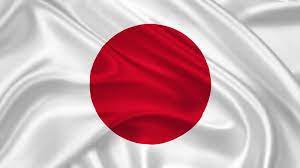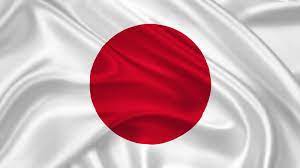
At his acrylic panel manufacturing company in Tokyo, Satoaki Kanoh will soon have to replace over a dozen aged machinery. This is a significant project that he fears may get even more expensive.
"My goal is to perform one every year. However, I don't have that much money," Kanoh remarked in reference to the specially made equipment, which each cost about 50 million yen ($330,000).
"If we have to pay a lot to borrow, we could end up in a really tough spot."
This week, Japan's central bank abandoned its negative interest rate policy and increased interest rates for the first time in 17 years. Even while the move is largely symbolic—rates are still stuck close to zero—it has nonetheless brought about a change in Japan that hasn't occurred in decades: higher borrowing costs.
Millions of Japanese are now assessing how to adjust to increasing borrowing costs following the protracted, austere years of deflation, during which prices, salaries, and the cost of borrowing changed minimally. These individuals range from small company owners like Kanoh to first-time homeowners.
In an economy where private spending makes up over half of GDP and small and medium-sized businesses employ almost 70% of the labour force, how they manage will have a significant impact.
Kanoh is concerned about how quickly rates might rise. He warned that if too much happens too soon, Japan won't be able to adjust.
There are currently roughly 100 million yen in loans for his company, Shinshi Co., but they have set interest rates.
The difference between 3% and 1% would be significant even on a smaller loan of roughly 10 million yen, he noted, with the annual interest payment at 3% equal to the monthly income of one person.
For a long time, Japanese businesses and individuals have followed a deflationary strategy: save money and make savings. Due to this, the economy was trapped in a vicious cycle of wage stagnation and sporadic growth.
It could be challenging to overcome that deflationary mindset even while prices and certain wages rise.
Large corporations are currently offering some of the biggest salary increases in decades, but it's unclear how much of this will benefit smaller businesses.
A Reuters survey conducted on Thursday revealed that over 60% of Japanese businesses anticipate rates to increase to 0.25% by the end of the year. Many stated that they want to spend money upfront before borrowing becomes more expensive.Owner of a water treatment equipment design company in Tokyo, Eiichi Hagiwara, warns that rising borrowing rates may further erode small businesses' already precarious profit margins.
Larger projects, in his opinion, might no longer be possible because they call for loans to pay for supplies and other expenses up front. Lower profit margins are ultimately the result of having to pay interest.
"There's no work with big margins now," Hagiwara said. "If I don't lower prices I can't get the work."
He typically avoids lending in favour of keeping cash on hand to cover operating expenses. In order to strengthen relationships, he also makes use of soft talents like taking clients out.
The 76-year-old founded EN-TEC, a business, two decades ago, and currently has about 20 employees. Being wise and making sure pricing are kept reasonable to maintain business relationships are essential components of success.
"You have to make sure to take the minimum profit you can," he stated. "If you borrow money and interest rates go up, you'll be in trouble."
Only once, roughly ten years ago, did Hagiwara take out a sizable loan of roughly 100 million yen to purchase the company's headquarters building.
However, knowledge of the loan quickly spread, leading colleagues and rivals to believe the business was having problems. After that, Hagiwara made the decision to repay the loan in full, which he accomplished six months after taking out the loan.
There are business owners who believe that interest rates will eventually stabilise the weak yen, particularly those who depend on imports. Fuel and food prices have increased as a result of the ongoing sell-off of the currency.
The yen has been a major burden for Yasunobu Tashiro, who owns a restaurant and a store in the hot spring resort of Kinugawa Onsen that sells handbags and other imported goods.
"We're in the import business so the weak yen has been causing us a lot of trouble when we go overseas," he said. He said that purchases that once cost the equivalent of $6,700 now come with a $10,000 price tag.
The 29-year-old IT engineer Haruka Yoda, however, is more positive.
He bought a house with his wife and their one-month-old child using loans.
"I feel hopeful that they won't move too much," he stated."Even if interest rates rise significantly our salaries might also go up," he stated.
(Source:www.reuters.com)
"My goal is to perform one every year. However, I don't have that much money," Kanoh remarked in reference to the specially made equipment, which each cost about 50 million yen ($330,000).
"If we have to pay a lot to borrow, we could end up in a really tough spot."
This week, Japan's central bank abandoned its negative interest rate policy and increased interest rates for the first time in 17 years. Even while the move is largely symbolic—rates are still stuck close to zero—it has nonetheless brought about a change in Japan that hasn't occurred in decades: higher borrowing costs.
Millions of Japanese are now assessing how to adjust to increasing borrowing costs following the protracted, austere years of deflation, during which prices, salaries, and the cost of borrowing changed minimally. These individuals range from small company owners like Kanoh to first-time homeowners.
In an economy where private spending makes up over half of GDP and small and medium-sized businesses employ almost 70% of the labour force, how they manage will have a significant impact.
Kanoh is concerned about how quickly rates might rise. He warned that if too much happens too soon, Japan won't be able to adjust.
There are currently roughly 100 million yen in loans for his company, Shinshi Co., but they have set interest rates.
The difference between 3% and 1% would be significant even on a smaller loan of roughly 10 million yen, he noted, with the annual interest payment at 3% equal to the monthly income of one person.
For a long time, Japanese businesses and individuals have followed a deflationary strategy: save money and make savings. Due to this, the economy was trapped in a vicious cycle of wage stagnation and sporadic growth.
It could be challenging to overcome that deflationary mindset even while prices and certain wages rise.
Large corporations are currently offering some of the biggest salary increases in decades, but it's unclear how much of this will benefit smaller businesses.
A Reuters survey conducted on Thursday revealed that over 60% of Japanese businesses anticipate rates to increase to 0.25% by the end of the year. Many stated that they want to spend money upfront before borrowing becomes more expensive.Owner of a water treatment equipment design company in Tokyo, Eiichi Hagiwara, warns that rising borrowing rates may further erode small businesses' already precarious profit margins.
Larger projects, in his opinion, might no longer be possible because they call for loans to pay for supplies and other expenses up front. Lower profit margins are ultimately the result of having to pay interest.
"There's no work with big margins now," Hagiwara said. "If I don't lower prices I can't get the work."
He typically avoids lending in favour of keeping cash on hand to cover operating expenses. In order to strengthen relationships, he also makes use of soft talents like taking clients out.
The 76-year-old founded EN-TEC, a business, two decades ago, and currently has about 20 employees. Being wise and making sure pricing are kept reasonable to maintain business relationships are essential components of success.
"You have to make sure to take the minimum profit you can," he stated. "If you borrow money and interest rates go up, you'll be in trouble."
Only once, roughly ten years ago, did Hagiwara take out a sizable loan of roughly 100 million yen to purchase the company's headquarters building.
However, knowledge of the loan quickly spread, leading colleagues and rivals to believe the business was having problems. After that, Hagiwara made the decision to repay the loan in full, which he accomplished six months after taking out the loan.
There are business owners who believe that interest rates will eventually stabilise the weak yen, particularly those who depend on imports. Fuel and food prices have increased as a result of the ongoing sell-off of the currency.
The yen has been a major burden for Yasunobu Tashiro, who owns a restaurant and a store in the hot spring resort of Kinugawa Onsen that sells handbags and other imported goods.
"We're in the import business so the weak yen has been causing us a lot of trouble when we go overseas," he said. He said that purchases that once cost the equivalent of $6,700 now come with a $10,000 price tag.
The 29-year-old IT engineer Haruka Yoda, however, is more positive.
He bought a house with his wife and their one-month-old child using loans.
"I feel hopeful that they won't move too much," he stated."Even if interest rates rise significantly our salaries might also go up," he stated.
(Source:www.reuters.com)





